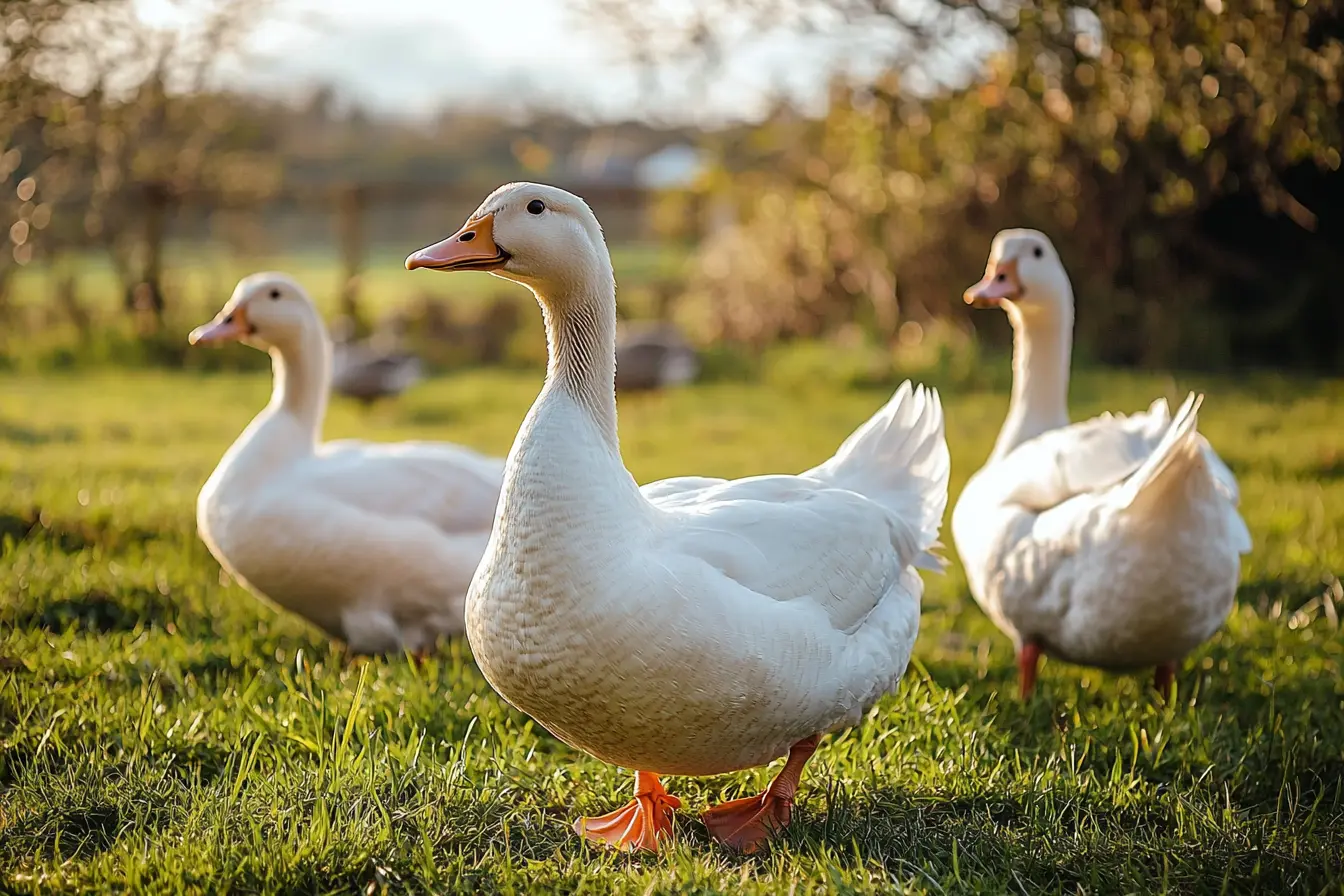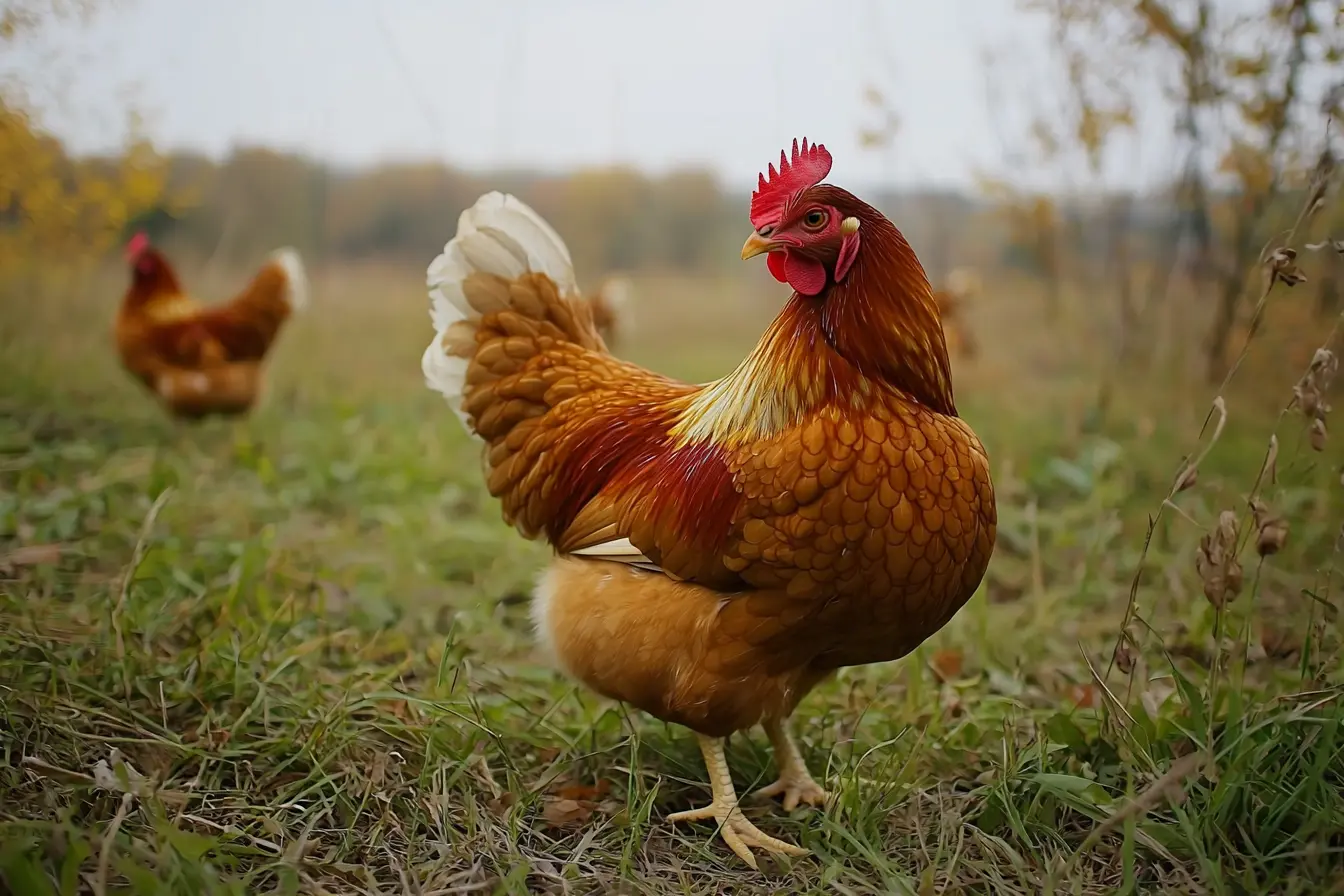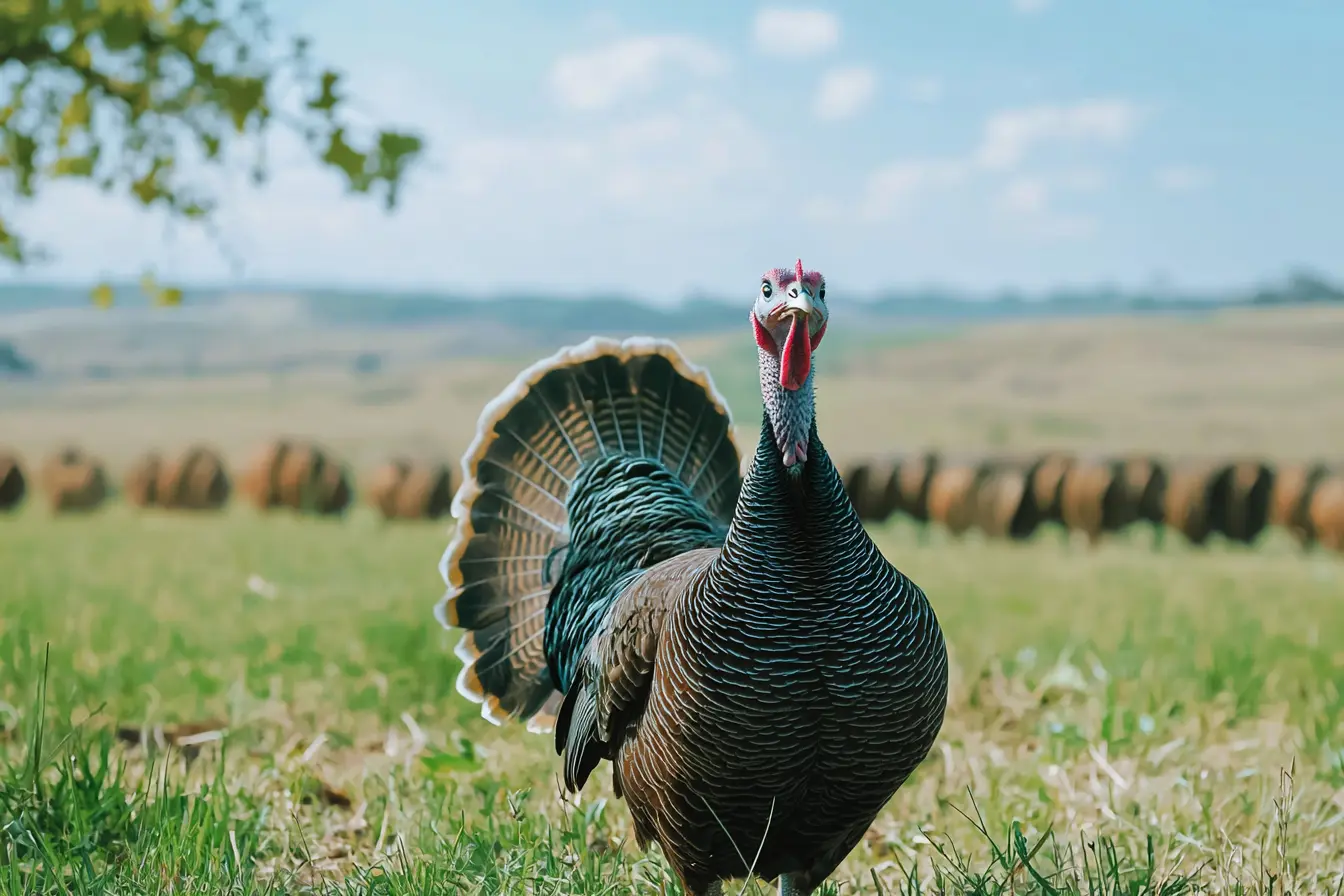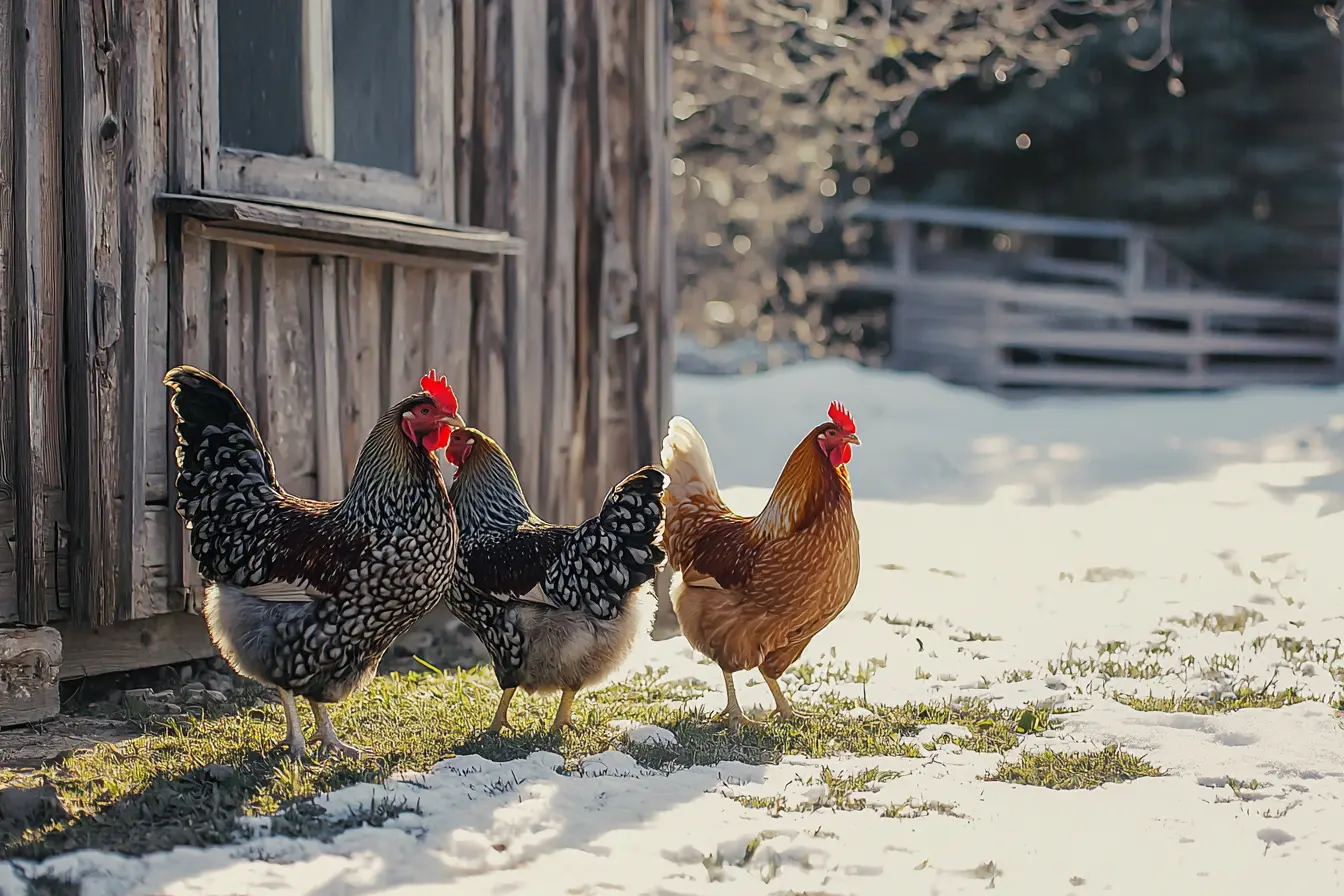
A Complete Guide to Keeping Aylesbury Ducks
Aylesbury ducks are a quintessential British breed, known for their distinctive white plumage, bright orange feet, and pink bills. They have been a staple of British waterfowl farming for centuries and are prized for their meat, docile nature, and charming personalities. Whether you are considering keeping Aylesbury ducks for their eggs, as pets, or for their historical significance, this guide will provide you with all the essential information you need to care for them properly.
Introduction to Aylesbury Ducks
Originating from the town of Aylesbury in Buckinghamshire, this breed has a long history dating back to the 18th century. Aylesbury ducks were initially bred for their high-quality meat but have since become popular as ornamental and backyard ducks.
Key Characteristics:
- Lifespan: 8-12 years with proper care
- Size: Large (drakes weigh around 4.5-5.5 kg, ducks 3.5-4.5 kg)
- Temperament: Docile, friendly, and calm
- Colour: Pure white with a distinctive pink bill and bright orange feet
- Egg Production: 80-150 large white eggs per year
- Meat Production: Renowned for their tender, succulent meat
- Hardiness: Tolerant of UK climates but require dry conditions
Why Choose Aylesbury Ducks?
Aylesbury ducks are an excellent choice for both beginners and experienced keepers. Here are a few reasons why they are a popular breed:
- Historical British Breed: Keeping Aylesbury ducks helps preserve an important part of the UK's agricultural heritage.
- Friendly Nature: Their calm and sociable personalities make them excellent pets.
- Dual-Purpose Birds: Suitable for both egg and meat production.
- Low Maintenance: They are relatively easy to care for with the right setup.
- Great for Gardens: Their gentle foraging habits can help control pests such as slugs and snails.
- Attractive Appearance: Their striking white feathers and pink bills make them a beautiful addition to any setting.
Housing Requirements for Aylesbury Ducks
Providing a safe and comfortable environment is crucial to keeping Aylesbury ducks healthy and happy.
Duck House Requirements
- Size: Allow at least 0.5 square metres per duck inside the duck house.
- Ventilation: Ensure good airflow to prevent respiratory issues.
- Bedding: Use straw, wood shavings, or hay to provide warmth and comfort.
- Predator Protection: Secure the housing against foxes, rats, and other predators.
- Low Entrance: Ducks prefer walking into their housing rather than jumping.
Outdoor Space and Water Access
Aylesbury ducks enjoy foraging and swimming, so adequate outdoor space is essential.
- Run Size: Provide at least 2-3 square metres per duck, with more space being beneficial.
- Water Source: A small pond, paddling pool, or shallow water trough for swimming and preening.
- Fencing: A minimum height of 90 cm fencing is recommended to keep them safe and contained.
Tip: Regularly clean their water sources to maintain hygiene and prevent disease.
Feeding Your Aylesbury Ducks
A balanced diet is vital for maintaining their health and productivity.
Essential Nutrition
- Duck Pellets (16-18% protein): Formulated to meet their dietary needs, especially during laying periods.
- Greens and Vegetables: Leafy greens, peas, lettuce, and chopped vegetables are excellent additions.
- Grains: Wheat, oats, and barley can supplement their diet.
- Grit: Helps with digestion by breaking down food in their gizzard.
- Fresh Water: Ducks need constant access to clean water for drinking and washing food.
Feeding Tip: Avoid giving them bread, as it lacks essential nutrients and can cause digestive problems.
Health and Common Concerns
Aylesbury ducks are generally hardy but require regular care to prevent common health issues.
Common Health Problems:
- Wet Feather: Occurs when feathers lose their waterproofing; ensure clean water and proper diet.
- Bumblefoot: A bacterial infection caused by rough surfaces; provide soft bedding and inspect feet regularly.
- Obesity: Due to their large size, they can gain weight easily; monitor food intake and encourage exercise.
- Respiratory Infections: Ensure dry, well-ventilated housing to prevent respiratory problems.
- Parasites: Regularly check for lice and mites, especially around their vent area.
Preventative Care: Maintain a clean environment, provide a balanced diet, and conduct routine health checks.
Behaviour and Handling
Aylesbury ducks are known for their friendly and gentle nature, making them a joy to keep.
- They are social birds and thrive in small groups or pairs.
- They enjoy human interaction and can become quite tame with regular handling.
- They have a calm and slow-moving temperament, making them suitable for mixed flocks with other poultry.
- Due to their docile nature, they may be vulnerable to bullying by more assertive duck breeds.
Handling Tip: Approach your ducks calmly and consistently to build trust and familiarity.
Egg Production and Collection
Aylesbury ducks are not the most prolific egg layers but can provide a steady supply of delicious eggs.
Egg-Laying Habits:
- They typically start laying at around 5-7 months of age.
- Expect around 3-4 eggs per week, particularly in the spring and summer months.
- Aylesbury ducks are not naturally broody, so artificial incubation may be required if breeding is desired.
Egg Collection Tip: Collect eggs daily to prevent damage and ensure cleanliness.
Winter Care
Although Aylesbury ducks are well-adapted to the UK climate, they require extra care during colder months.
- Sheltered Housing: Provide windproof and insulated housing to protect against frost.
- Bedding: Increase bedding layers for warmth and insulation.
- Water Maintenance: Prevent water sources from freezing with heated water dispensers or frequent checks.
- Extra Feeding: Increase caloric intake slightly to help maintain body heat.
Winter Tip: Ensure they have access to dry areas to prevent cold-related health issues such as frostbite.
Breeding and Raising
If you plan to breed Aylesbury ducks, there are a few things to consider.
Breeding Tips:
- The breeding season typically runs from March to July.
- Provide nesting areas with soft bedding for laying.
- Incubation lasts around 28 days, with an optimal temperature of 37.5°C.
- Ducklings require warmth, chick (or duckling) starter crumb, and access to shallow water under supervision.
Growth Rate: Aylesbury ducklings grow quickly and reach full size within 8-10 weeks.
Legal Considerations in the UK
Before keeping Aylesbury ducks, it is important to check local regulations and adhere to legal requirements.
- DEFRA Regulations: Follow biosecurity guidelines to prevent avian diseases.
- Local Council Guidelines: Check for any restrictions related to keeping ducks in residential areas.
- Neighbour Relations: Inform neighbours and take measures to minimise noise and mess.
Conclusion
Aylesbury ducks are a wonderful choice for those looking to keep traditional British waterfowl. Their friendly nature, manageable care requirements, and historical significance make them a rewarding addition to any backyard or smallholding.
By providing the right housing, nutrition, and care, your Aylesbury ducks will thrive and bring joy to your home for years to come.
Contents
Tags
Vets near you
Speciality vets
- Aquatics vet specialists
- Birds vet specialists
- Camelids vet specialists
- Cats vet specialists
- Cattle vet specialists
- Deer vet specialists
- Dogs vet specialists
- Equines vet specialists
- Exotic vet specialists
- Goats vet specialists
- Pigs vet specialists
- Poultry vet specialists
- Sheep vet specialists
- Small Mammals vet specialists
- Wild vet specialists
Vet facilities
- Accessible by public transport
- Blood testing
- Car park nearby
- Client car park
- Dentistry
- Diagnostic imaging
- Disabled public access
- Flea and worm treatments
- Microchipping
- Mobile services
- Neutering
- Open at weekends
- Out-of-hours service
- Referral interests
- Referrals only
- Street parking outside
- Toilets available
- Vaccinations



